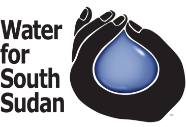Our Work & The SDGs: Part 1
Our team is not just providing access to clean water; we are actively championing the United Nations Sustainable Development Goals 1 through 4, paving the way for a brighter future through eradicating poverty, improving nutrition, enhancing health, and increasing educational opportunities.
Goal 1: No Poverty
At first glance, the connection between clean water and poverty may not be obvious. However, a World Bank study determined that South Sudan has an approximately 80% poverty rate. When South Sudanese communities gain access to newly drilled or rehabilitated wells, it can help break the cycles of poverty by providing opportunities for people to work, grow crops, and make goods to sell. Villages can establish markets, and local economies can grow.
Goal 2: Zero Hunger
A couple of months ago, we met Adut, a mother of three children, who started gardening and transformed her source of income. Before she received support from WFSS, her family struggled with adequate nutrition and access to healthy food. With savings of around 15,000 South Sudanese Pounds [SSP], she can now afford food and support her children's education by selling vegetables, and she has begun purchasing chickens and goats for future needs.
Goal 3: Good Health and Well-Being
Contaminated water can spread diseases like cholera, typhoid, and diarrhea, which are the leading causes of death for children in the country. Only 10 percent of the population has access to essential sanitation services. Access to clean water and hygiene education maximizes the impact of clean water and improves overall community health. Training community members in basic hygienic skills, such as handwashing and brushing teeth, is crucial in improving the health of rural South Sudanese communities.
Goal 4: Quality Education
Too often, walking to collect unsafe water keeps girls from obtaining a quality education. They walk an average of 3.7 miles per trip, sometimes making multiple trips to collect water, carrying up to 40 pounds (18 kgs) of water each time. In fact, According to UNICEF, 49 percent of girls are missing out on primary education, primarily due to the responsibilities of collecting water.
This is especially true for Janey and her classmates at the Kingson Primary School. Before our team drilled a new well in her village, access to safe drinking water was a constant struggle, forcing families to rely on contaminated sources that posed severe health risks. As a result, students like Janey spent countless hours walking long distances to collect water, which took time away from their education and left them exhausted.
Now, with the well providing a reliable source of clean water, Janey and her peers can attend school regularly without the burden of water-fetching weighing them down. This newfound availability of safe water has improved their health and allowed them to focus on their studies. With fewer distractions and the energy to learn, Janey dreams of a brighter future, inspired by the knowledge that access to clean water can change the trajectory of her life and her community.
But that’s not all! We're excited to share more about our ongoing dedication to advancing the Sustainable Development Goals, and we invite you to follow us on social media and bookmark our blog for the latest updates on our progress and initiatives.





